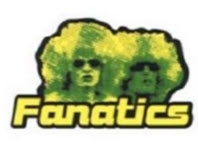- within Intellectual Property and Technology topic(s)
- with Senior Company Executives, HR and Finance and Tax Executives
- in United States
- with readers working within the Basic Industries, Business & Consumer Services and Insurance industries
The Full Federal Court has ruled in favour of Australian company FanFirm Pty Ltd in its long-running trade mark fight with US sports retail giant Fanatics, LLC. The case, Fanatics, LLC v FanFirm Pty Ltd [2025] FCAFC 87, is a reminder that having a well-known brand overseas does not guarantee trade mark rights in Australia, especially when a local trader got there first.
Key Reminders
This case is a textbook example of how Australian trade mark law protects local businesses, even when the challenger is a global heavyweight.
This case reinforces some key reminders for businesses operating in Australia:
- Prior use wins. Using your trade mark first in Australia is powerful, even if someone else registers it later.
- Be clear about what you're registering. If you register a mark for retail services, make sure you actually use it for those services. Revisit how your trade mark is being used and register new trade marks if you need to cover additional goods or services.
- Honesty and evidence matter. Claims of honest concurrent use will be tested closely by the courts. Good records and genuine intentions are key.
- A registration isn't a free pass. If you register a mark in Australia but don't use it properly, or are not the first user of the trade mark, you might lose it.
- If you're a business expanding into Australia, this case is a reminder to do your homework and your due diligence. Make sure your trade mark is available and not being used by someone else, even if you've registered it overseas.
- If you are a local brand, know that your early and consistent use can give you strong rights, even against much bigger competitors.
Background
FanFirm has used the name "FANATICS" in Australia since 1997, running sports tours and selling supporter merchandise. It registered the word mark FANATICS and the device below in April 2008 for a range of goods and services including clothing and retail services.

About a year later, Fanatics, LLC (a US-based online retailer of licensed merchandise with global reach) registered its own FANATICS mark in Australia, covering online retail and other services — despite not really operating here until 2020, when it started partnering with key brands like Rebel Sport and the AFL.
In around 2020, FanFirm took action, claiming Fanatics, LLC had infringed its trade mark rights and asking the court to cancel the US company's Australian registrations.
What Did the Court Decide?
The result of the litigation is that (subject to any further appeal), Fanatics, LLC has lost trade mark registration in Australia for clothing goods and retail services. Further, it was found to have infringed Fanfirm's trade mark in relation to these goods and services, and had the scope of protection for textile goods narrowed.
The outcome is summarised below in relation to each class of goods or services which were the subject of Fanatics, LLC's Australian trade marks:
| Class | Result for Fanatics, LLC |
|---|---|
| Class 25 (Apparel) | Cancelled – Court Held Fanfirm was the first user in Australia – Infringement Found, defence did not apply |
| Class 35 (Retail Services) | Cancelled – Court Held Fanfirm was the first user in Australia – Infringement Found, defence did not apply |
| Class 24 (Textiles, Towels) | Retained but narrowed – no infringement found (goods not sufficiently similar to clothing goods) |
We set out below some key lessons from the decision:
Lesson One: Goods and Services Matter
Fanatics, LLC argued it had used the FANATICS name in Australia through its online store. But the Court said placing a brand on products does not constitute use of the mark for retail services under Class 35.
Trade mark owners have to use the brand to identify the retail business itself, not just the goods sold.
Despite its colossal defeat, the Full Federal Court did agree with Fanatics, LLC that the Class 24 goods Fanatics was selling (like sports towels) were not goods of the "same description" as those in the FanFirm Class 25 registration which covered apparel like t-shirts and hats.
Lesson Two: First Use of a Trade Mark Matters
FanFirm had been using the FANATICS brand in Australia for years before Fanatics, LLC entered the Australian market. That use gave FanFirm ownership of the word mark and device for both clothing and retail services. Accordingly, the US company's competing registration in Class 35 was cancelled.
Lesson Three: Honest Concurrent Use Must Be Honest
Fanatics, LLC tried to defend its registration by saying it had used the name honestly and at the same time as FanFirm. But the Court found that Fanatics, LLC knew about FanFirm's brand when they applied for their own mark. The Court found that Fanatics, LLC did not provide enough solid evidence of honest adoption of the mark, or parallel use.
Lesson Four: You can't just hide behind your company name – Good Faith Matters
Fanatics, LLC also claimed it should be able to use the FANATICS name because it is part of its company name. But the Court said that defence only works if the name is being used in good faith and that was not the case here.
The case highlights the importance of:
- conducting some due diligence before adopting or seeking to register a new brand;
- actually using the mark for the goods and services for which protection is sought; and
- being the first to use the trade mark in Australia.
The content of this article is intended to provide a general guide to the subject matter. Specialist advice should be sought about your specific circumstances.


